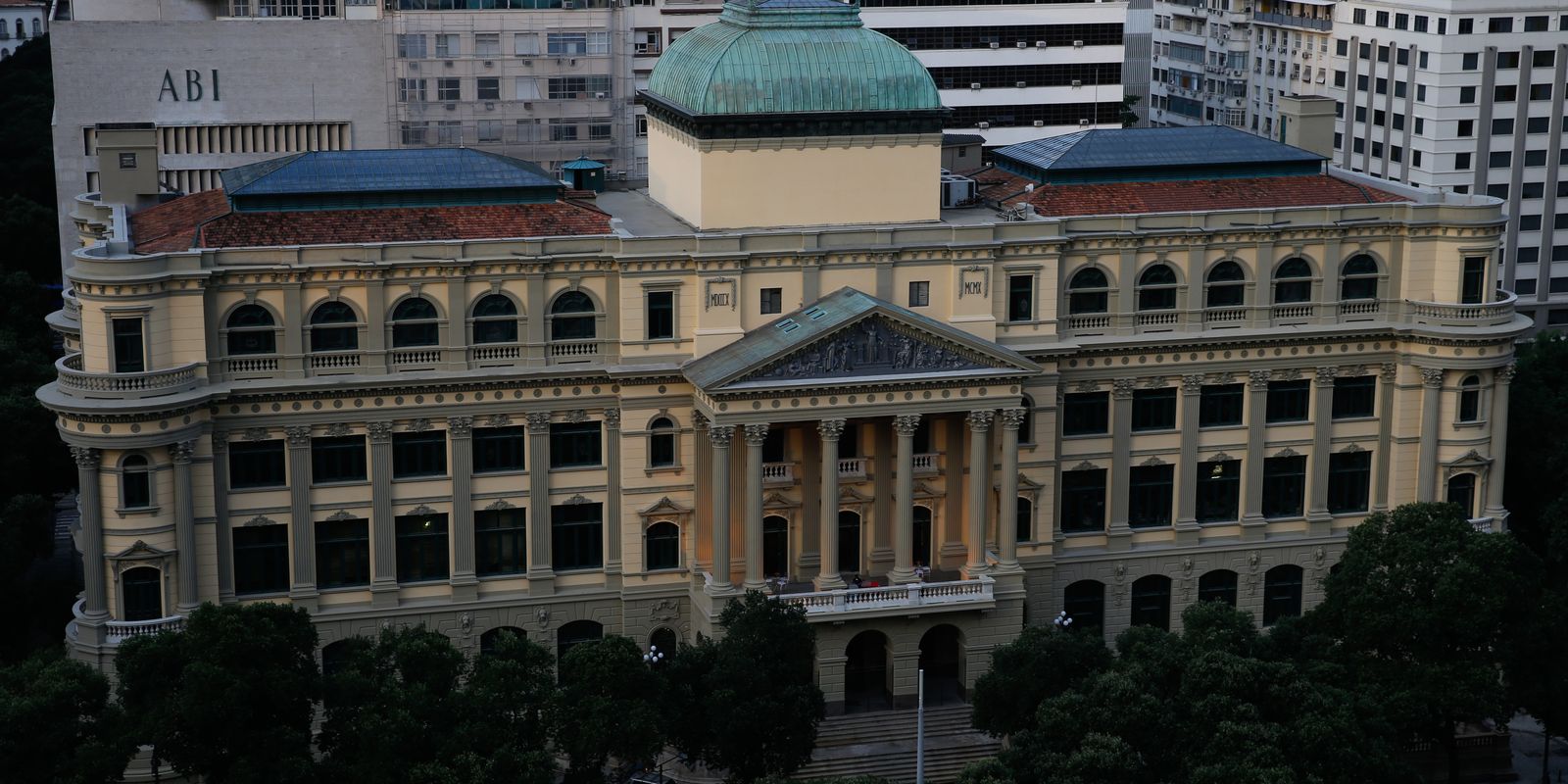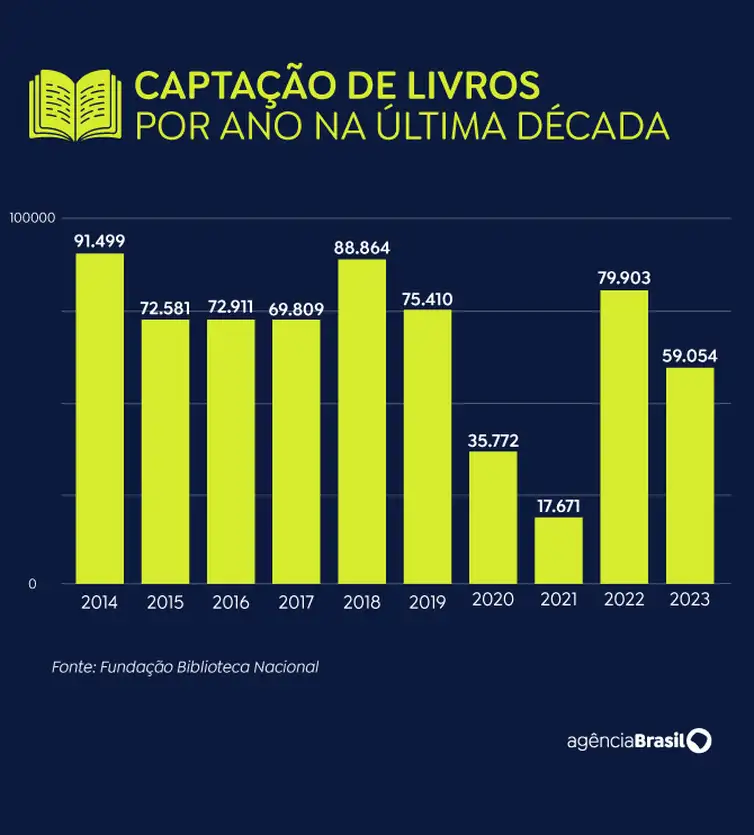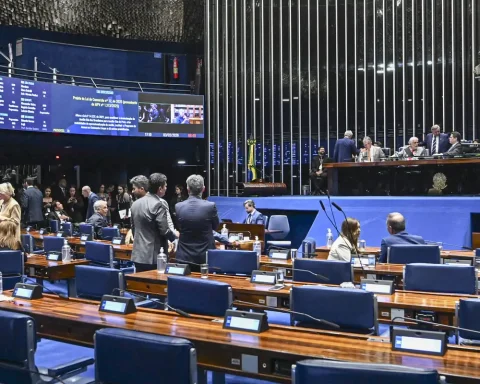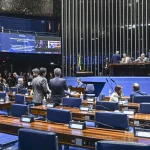For 20 years, every work published in Brazil has had to have at least one copy sent to the National Library Foundation (FBN), the oldest cultural institution in the country. Enacted in 2004, during the administration of singer and composer Gilberto Gil as Minister of Culture, the Law 10.994 “regulates the legal deposit of publications in the National Library, aiming to ensure the registration and safekeeping of national intellectual production, in addition to enabling the control, preparation and dissemination of current Brazilian bibliography, as well as the defense and preservation of the national language and culture”.
“A country without memory is not a country,” emphasizes Gabriela Ayres, general coordinator of the FBN Processing and Preservation Center, responsible for collecting works sent through Legal Deposit. “The National Library does not only safeguard the history of Brazil, but the history of the construction of Brazil.”
With the Legal Deposit, the space receives, on average, 80 thousand publications per year. Some areas of knowledge receive more works than others, and there is also a difference in the number of books sent by regions, especially the North and Northeast. “There is a shortage due to logistics and shipping costs, but we always try to cover the large areas and interact with publishers and authors, promoting heritage education about the importance of sending these publications to the National Library,” explains Ayres.
According to the Management Reports available on the institution’s website, in 2023 the foundation received 59,054 works through Legal Deposit. In the last ten years, the lowest collections were in 2020 (35,772) and 2021 (17,671), due to the covid-19 pandemic.
As for the types of books, the professor of the Department of Information Science at the Fluminense Federal University (UFF) and author of the book The Library and the Nation: Between catalogues, exhibitions, documents and memory (2024), Carlos Henrique Juvêncio, clarifies that they are all those published in the country, including translations of foreign productions and official documents, if gathered in books.
“Even if the author is foreign, there was a translator who, at the very least, speaks our language,” he points out. “In these cases, there may not be an intellectual production in the sense of a Brazilian work, but the editorial production is, as is the translator’s care and the language. The Legal Deposit shows the transformations in our language based on written production, so translations are also subject to the legislation,” he adds.
However, the researcher points out that Law 10,994 is still silent regarding publications made in the virtual environment. “There is a loophole that says ‘all printed works or in other media’, but it is still not very well regulated how the sending of digital works should be done and how they will be made available to the public”.
According to the general coordinator, digital publications, such as e-books (electronic books), are generally sent to the FBN stored on CD, but this issue continues to be one of the main challenges faced by the Processing and Preservation Center.
“The publication of scientific journals, for example, has completely moved away from the printed model, from a magazine, to a website model”, he notes. In this sense, in 2020, the National Library Digital Preservation Policy (PPDBN)with principles for the conservation, management and dissemination of the digital collection that makes up the BNDigitalcreated in 2006.
In addition to safeguarding the country’s cultural, literary and musical heritage, the Legal Deposit is also related to another Brazilian standard, the Law 9.610which regulates copyright in the national territory. The Copyright Law establishes that when a work enters the Public Domain, that is, it can be used without authorization from the family or heirs, after 70 years from the author’s death, the State becomes responsible for safeguarding its integrity.
“Analyzing this part of the law, which says that the State becomes responsible for the integrity of the work, this already refers to the Legal Deposit”, says Juvêncio.
According to the professor, with two decades of Legal Deposit, one issue that needs to be discussed is compliance with the legislation. “We have very serious publishers that effectively comply with the norm, but many of them do not,” he warns. As an example, he mentions the sending of newspapers, which he worked with at the National Library until 2010. According to him, the FBN received around 124 titles from all over Brazil, a scarce production for the country’s territorial extension.
“There are several reasons. The size of our country and the difficulty in sending documents explain this in part, but the law is not actually enforced. If it were, the National Library, which already suffers from a lack of space, would have no room for anything else,” he says.
Imperial law
Juvêncio explains that the Legal Deposit Law has its origins in another legislation from the early 19th century. In 1824, an order from the then Emperor Pedro I required that all printers of the Court, in the city of Rio de Janeiro, should submit to the Imperial and Public Library of the Court, today the National Library, a copy of all the works produced. The legislation would only be revised 83 years later, when the Decree 1,825, of December 20, 1907 determined that “the administrators of typography, lithography, photography or engraving workshops, located in the Federal District and in the States, are obliged to send to the National Library of Rio de Janeiro a copy of each work they execute”.
Almost 100 years later, the 1907 decree was replaced by the Legal Deposit Law and the Law 12.192/2010which “regulates the legal deposit of musical works in the National Library, with the aim of ensuring the registration, storage and dissemination of Brazilian musical production, as well as the preservation of the national phonographic memory”.
“The idea is that the National Library has all the works published and published in the country since the establishment of the Legal Deposit in the 19th century so that it can be a source of memory and complete what is called the National Memory Collection, formed by a group of institutions, such as the National Archives and the National Museum”, defines the professor.
* Intern under the supervision of Vinícius Lisboa

















